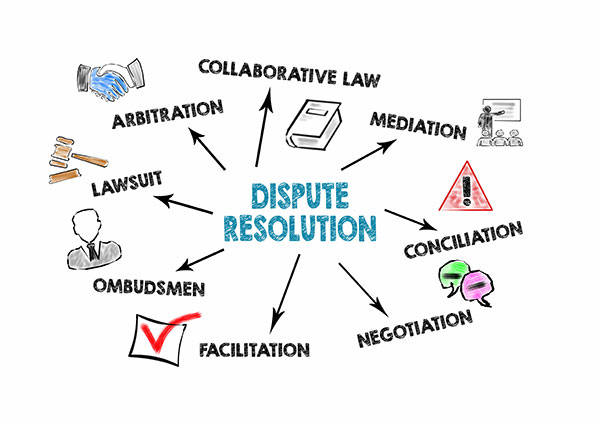
GET A FREE QUOTE
Simply fill out this form and a reputable lawyer in your area will contact you as soon as possible.


Request your quote now!


Simply fill out this form and a reputable lawyer in your area will contact you as soon as possible.


Request your quote now!




Divorce/Separation
Custody/Alimony

Liability
Insurance

TAQ / CSST / SAAQ

Sale/Purchase/Lease
Hidden defects/Litigation

Shareholder Agreement
Incorporation

Fill out the online form in less than 2 minutes.

Get a quote within 48 hours of your request.

If the offer is right for you, close the deal with your lawyer.

No hiddens fees
or commission

Your request doesn’t
engage you

A few clicks for
a response within 48 hours

A experienced lawyer
at your service
Find the best lawyer for you to represent / advise you in your corporate law case:
The world of business and the world of law are intrinsically linked and have been for several years. One cannot survive without the other, which is why business leaders increasingly need legal advice to steer their businesses well towards their goals. Far from being limited to advocacy, the skills set of business lawyers also extend to areas specific to company management such as drafting contracts, shareholder disputes, and corporate restructuring.

This is just the beginning of the story! The services they offer are tailored to the specifics of the company that retains their services. Below are the areas where business lawyers offer assistance.
The contract is the basic tool of any business relationship. It serves to bind the parties to the latter by giving legal value to the agreement created. This legal value entails obligations on the part of each party, in addition to creating consequences depending on the type of contract formed! You must therefore know the basics of a contract before embarking on it, since there are many agreements out of which no lawyer can get you out.
How is a contract formed? Far too many individuals and even executives of companies of all sizes still mistakenly believe that a contract is a piece of paper with terms, conditions, and signatures on it. While this piece of paper is proof of the deal, it is by no means the contract itself!
A contract is formed as soon as one of the parties accepts the proposal clearly, unequivocally and without changing the terms of the offer, even if the agreement is verbal! That’s right; the contract is formed upon the exchange of consent of the parties, without any formality necessary (except for the exceptions explicitly provided for by law). Here is what the Civil Code of Quebec stipulates about the formation of contracts:
The contract is formed by the sole exchange of consent between persons
capable of contracting, unless the law also requires compliance
with a particular form as a necessary condition for its formation, or that the parties
do not subject the formation of the contract to a solemn form.
It is also of the essence of a contract that it have a cause and an object.
Article 1385 C.c.Q
Thus, it may very well be that you have entered into some verbal contract! You will, therefore, be bound by the same obligations as a written contract although it will be more difficult for your co-contractor to prove this in court!
As such, not all contracts carry the same degree of obligations. In addition to the service that your co-contractor undertakes to perform (for example, delivering 50 tons of steel to your welding company), he is bound by a certain degree of obligation in terms of the success of his service.
The guiding principle of the degree of obligation of success in a contract depends on the type of control that the contractor has over the factors affecting the performance of the contract. There are 3 levels of obligations that will affect your recourse against him in the event of non-performance:
Obligation of means: This is the lowest degree of obligation to succeed in a contract. The co-contractor only undertakes to take all possible means to achieve the service to which he undertakes, without, however, guaranteeing its completion. The best example of this type of obligation is that which binds the doctor and his patient: he does not have the obligation to guarantee a cure, only to take all the means to achieve it.
You will, therefore, understand that suing a co-contracting party who has not respected his commitment is more difficult when the obligation was only of means since you will have to prove that he did not take all the best means to reach the agreed end. It’s not easy, to say the least!
Obligations of result: The obligation of result is more intense than that of means since it requires the co-contractor to achieve the initially agreed result. The service being clear and determined beforehand, the person is required to perform it, except in the event of reasons legally justifying his non-performance, such as a case of force majeure, for example.
Guaranteed obligation: The guarantee obligation is similar to the obligation of result in the sense that the final result must absolutely be achieved. The nuance is that no circumstance, however fortuitous, can justify the breach of the contract. Even a case of force majeure where the circumstances were unforeseeable, irresistible, and not caused by the co-contracting party will not discharge the latter from his guaranteed obligation. He is personally responsible for the execution of the contract in its entirety!
Legal vs. illegal agreement: While forced execution of a contract is possible in almost all situations, know that it is not the case if the agreement your company made is not legal. But what constitutes an illegal agreement within the meaning of the law? You have to divide the contract into two subsections to get the answer:
Subject of the illegal contract: The subject of the contract is what lies at the center of the concluded agreement, for example, the house which is at the heart of the property sale contract. While the house is an object of legal contract, the same could not be said for the sale of an illegal, banned or prohibited product by law. For this reason, no contract for the sale of drugs is likely to be forcibly executed as the subject matter of the contract renders it invalid.
Thus, if your company agrees to receive an illegal product from a third party, this contract would not be legally valid, in addition to being null and void.
Cause of the illegal contract: The cause of the contract refers to the reason that prompted the parties to enter into the original agreement. For example, in the case of a car sales contract, the cause of the buyer’s contract is the need for a vehicle while the cause of the seller’s contract is the money he receives in return.
As the law is based on the principle that any contract must have a legal cause, it is, therefore, normal that if your company contracts for illegal reasons, your contract will not be valid!
Finally, you will indeed have recourse against a co-contractor who refuses to perform the service to which he has undertaken if it is legal. But how will this execution take place, exactly? The answer can be found below!
The lawyer himself cannot force the execution of a contract. It is through the intervention of the latter, followed by a court judgment, that the co-contractor of your company will be forced to respect his commitment. But as a business manager, you are in a good position to know that some broken contracts cause damage or that a delay in performance will make the delay in service obsolete.

Fear not, the law is at the forefront of these problematic situations and provides for various compensation mechanisms that will come into play when performance in kind is not possible.
Forced performance in kind: Implemented by way of an injunction, forced performance in kind is relevant when the mere performance of the agreed service would repair the damage caused by the initial non-performance. For example, a judge could order a delivery company to deliver the agreed product if this failure to perform has not caused any further damage warranting additional compensation.
Compensation for damages: The award of “damages” occurs when performance in kind is impossible or would cause disproportionate inconvenience. The damages will be of a compensatory order if the non-performance of the contract has caused a financial loss, while they will be of a moratorium order if the late performance has caused other damage to the contracting party.
If you are the head of a company or one of its senior managers, it is inevitable that you will find yourself in a scenario of breach of contract. This is a common problem in all areas of the business world, and it is in such circumstances that the assistance of a lawyer will be essential!
Everyone has experienced making a deal that he or she later regretted. Whether it’s a bad hockey card trade at age 10 or a multi-hundred thousand dollar subcontract as the head of a company, everyone wants to get rid of these bad transactions no matter what the cost. However, is it possible to get rid of the obligations that accompany a properly signed contract? The lawyers will quickly tell you no, except in exceptional circumstances.
In fact, the following principle of law guides the operation of almost all contracts in Quebec law:
The contract may only be terminated, terminated, modified or revoked for causes
recognized by law or by agreement of the parties.
Article 1439 C.c.Q.
But what distinguishes the different ways of terminating a contract? These provisions take effect either by agreement of both parties to the contract or by order of a judge, which is called judicial termination:
Resolution: Termination of a contract is the appropriate solution when the parties have entered into a contract for instant execution (which takes place all at once) which allows things to be restored to their original state.
As the resolution aims to restore the original situation, the resolution therefore has a retroactive effect which seeks to pretend the contract was never formed.
Termination: Termination differs from resolution since it only applies to successive performance contracts, that is, contracts that run over a continuous period of time (Ex: a contract of contract with a construction contractor).
While resolution has a retroactive effect, termination only has the effect for the present moment. It only puts an end to the obligations of each of the parties.
Cancellation: Cancellation occurs when a contract has not been validly formed. A principle of cancellation that few people know is that it is, like resolution, a way of restoring the original situation. What distinguishes cancellation, however, is that a void contract is deemed never to have been valid, and therefore never to have existed.
When a contract is declared void after the parties have performed their respective services, the services must be returned. This will be done either in kind or by equivalent, depending on the nature of the contract and the feasibility of restitution in kind.
Modification: As you can deduce from reading article 1339 C.c.Q., a contract cannot be modified without the agreement of both parties to it. A contract is, thus, binding on the parties for better or for worse, unless both parties agree to change it. A notable exception is the principle of reduction of obligations in favor of the debtor which can be granted when the obligee does not perform adequately in a contract for successive performance.
To answer the question asked, it is indeed possible to terminate a contract but doing so is really not easy! In addition, even if you manage to cancel a contract between your company and another, you will have wasted time, invested money in legal costs, and this, for very little gain.
Non-performance of contract is sometimes a strategy in the business world! Business leaders know that no one wants to fight a legal battle in court. This is why some executives choose not to fulfill their contractual obligations to force a reduction in obligations. Despite the bad faith that implies such a scheme, the other party will often choose to negotiate, knowing full well that the alternative is an equally expensive lawsuit.
Better to consult a lawyer before signing a contract rather than after: prevention is much easier than cure in law, just like in life!
On the corporate side of the law, it should be noted that the majority of incorporated companies have shareholder agreements. Such a contract aims to provide for the rights, obligations, responsibilities, and duties of the shareholders of a company or, in other words, of a corporation.

A corporation is a very complex entity which requires that everyone’s rights be clearly established. However, no contract is as clear as the parties believe from its formation. Even if the conditions seem to be crystal clear, a disgruntled shareholder will find a way to cloud these waters!
Most shareholder agreements provide for mediation and arbitration mechanisms in the event of a dispute between them. However, you will need a lawyer to assist you in this process of contractual interpretation.
In addition, one of the frequent sources of dispute between shareholders stems from an agreement that is no longer up to date due to a change in structure or a change in the role of the shareholders involved. If you are directly or indirectly involved in the administration of the legal aspects of your business, you should consider updating your shareholders agreement before it becomes a source of conflict!
Whether the dispute ends before a mediator, an arbitrator, or a judge, the principles of contract interpretation of the Civil Code of Quebec will be applied.
This implies looking for the common intention of the parties at the time of forming the contract and not in the literal sense of the words of the contract. This is the watchword the judge will try to apply as faithfully as possible!
However, it is possible that the search for this common intention will lead the judge to look into the circumstances surrounding the formation of the contract to find this common intention.
If this research were to prove unsuccessful, the judge would have to rule in favor of the party to the contract who made the agreement and in favor of the party who signed it. This will only happen when all the mechanisms for interpretation have been exhausted.
In any case, you must act as quickly as possible and consult a lawyer as soon as possible if the quarrel between associates seems to be sticking out, because such a conflict will hurt the productivity and profitability of the business!
Lawyers are not just allies when a legal battle arises among company shareholders. Their expertise is also relevant on happier occasions, such as starting a business! But how can a lawyer help you in such circumstances?
Legal advice: Signing contracts, partnerships, payment agreements- these are decisions that are part of the daily life of a business manager! This is all the more true when starting a business. Who will you partner with? Do you have the right to make a certain agreement? To have the answers to these questions, you need the advice of a lawyer to start your business on the right footing.
Setting up the structure: Not all companies are made of the same mold! Depending on the size of the latter, it will be necessary to make a choice of business structure that meets its needs and those of its leaders. Your lawyer will guide you through the choices available to you, namely sole proprietorship, limited partnership, general partnership, and joint stock company. Each of these options entails a different degree of obligation and responsibility for those involved.
Drafting a shareholders ‘agreement: If the choice of structure falls on the joint stock company, it will be wise to consider hiring a lawyer to draft a shareholders’ agreement. You have seen that an argument between the shareholders of a company can quickly escalate. Taking the lead by having a clear agreement drawn up will start your entrepreneurial adventure on the right foot!
Incorporation: If you are fortunate enough to be part of a company that generates significant revenues while increasing strategic partnerships, you will want to consider incorporation. While this process sometimes happens along the way as the business takes off, it is also possible to incorporate a business that has just started. This will be prudent if you operate in an area where liability claims are frequent.
To put it simply, hiring a lawyer for a business start-up allows you to get off on the right foot and avoid many legal complications with competitors, shareholders, etc.
Once your business is well-established and your business relationships solidly in place, one of the challenges of your day to day operations will be to enforce the agreements made. If you believe that all your associates will feel bound by the contract, think again! Even long-time partners can turn out to be trouble when they refuse to perform. Hence, you need to know what to do to force them to fulfill their obligations!

Regarding the collection of accounts (getting paid by your creditors), it requires the intervention of a lawyer since the other party must be put in default for him to be asked to pay the sums due before starting any pursuit against him.
A formal notice must be clear, state the action you want to force the other person to perform and indicate a time limit within which legal remedies will be taken. Such a document is not only better drafted by a competent lawyer but will also be more likely to convince the other party to comply. If the formal notice does not work, you will still have the remedies mentioned above at your disposal!
By the way, the same can be said of undelivered goods that you have already paid for! You will have to give notice to your merchandise supplier which will open the same doors as for a collection of accounts.
One thing is certain. There is a reason for the existence of legal tools at your disposal to and are always more effective than making the conflict drag on.
Often seen as the most spectacular deals in the corporate world, mergers and acquisitions may not seem complicated. In practice, however, it is quite the opposite. The merger consists of taking two companies with common interests and combining them under one roof.
You will have guessed that a merger of two large companies will require a reorganization and restructuring of the operations of the company. This includes drafting a new shareholders agreement, redefining the value of certain stocks and, sometimes, laying off employees. Indeed, as a merger sometimes creates an unnecessary repetition of certain positions, dismissal is sometimes inevitable for some.
The acquisition, while also involving extensive legal and administrative procedures, is slightly simpler than a merger. It consists of completing the purchase of one company by another. However, there is more complexity to these two processes than might appear at first glance. Indeed, everything must first start with due diligence by a lawyer in commercial law!
Due diligence, as the name so clearly suggests, involves analyzing all the important aspects of a company that is potentially the subject of a purchase. These aspects include the finances of the company, the debts contracted to various creditors, the risks of various lawsuits and especially the projected profitability of the company in question.
The lawyer will also list the assets of the company, the real rights it has, as well as the various mortgages that could encumber the company. He will also do a full analysis of the contracts that bind the seller’s business to third parties to determine the extent of the obligations purchased.
The role of the corporate lawyer, in all this turmoil, is to make sure the transaction is legally and financially secure for the buyer. It may sound simple but the criteria for a secure transaction are not the same in agriculture as they are in intellectual property.
Although the underlying principles of mergers and acquisitions are fairly straightforward, the diversity of the areas in which these principles apply means that lawyers must know how to adapt to the specifics of each sector of the business world.
Some attorneys live only for advocacy while others go through an entire career without setting foot in court. These are two different approaches to law that each have their merits. While some situations get to court with good reason, others would be better served with an out-of-court settlement.

This is especially the case for companies of all sizes! As judgments handed down by a judge are often unsatisfactory for all parties involved, it is better to agree out of court to try to come to a real compromise!
Moreover, it is no secret that accessibility to the courts of justice is a glaring problem in our society, which makes obtaining justice a real challenge. This is true to such an extent that the new Code of Civil Procedure of Quebec (the book governing the procedures to be followed in our legal system), henceforth, provides for an obligation for potential parties to a dispute in court to have at least attempted a settlement of differences before filing a request to institute proceedings:
The private methods of preventing and resolving disputes are chosen
by mutual agreement between the parties concerned, with the aim of
preventing an unborn dispute or of resolving an already born dispute.
These private modes are mainly negotiation between the parties to the dispute
as well as mediation or arbitration in which the parties call on the
assistance of a third party. The parties may also resort to any other mode
that suits them and that they consider appropriate, whether or not it
borrows from these modes.
Parties should consider resorting to private means of preventing
and resolving their dispute before going to court.
Article 1
Quebec Code of Civil Procedure
It is an initiative taken by legislators which aims to unclog the courts and promote the resolution of disputes in a private way rather than through public justice. But what are mediation, negotiation, and arbitration?
Negotiation: Through lawyers representing each of the parties (in this case, the companies at the heart of a dispute), an agreement will be sought that will satisfy the interests of each of the parties involved. No third party is involved in the resolution of this conflict apart from the people directly involved and their legal representatives. Negotiation is often the first step in resolving a dispute.
Mediation: When the negotiation turns out to be unsuccessful or such an option has never been presented, recourse to mediation is a common reflex in law. Mediation is, in fact, a negotiation supervised by a third party; the mediator. He will play the go-between by trying to reconcile the interests of the parties to make them reach an agreement that satisfies all. The mediator has no decision-making power other than to do his best to assist the parties to reach an agreement.
Arbitration: Unlike mediation, arbitration involves putting the decision-making power that a judge would normally have in the hands of a third party. When both parties agree to submit their dispute to arbitration, they agree to be bound by the arbitrator’s decision, in addition to waiving their right to bring the same issue to court. The arbitrator is, therefore, vested with important decision-making powers, especially as his decision is final, unlike a judge’s decision. The latter must also have been chosen by both parties.
But what are the benefits of resolving your business issues with private dispute resolution? The main advantage is that the dispute will be settled much faster. In fact, within a few weeks, you will be able to settle everything and move on to more important things without delay.
On the contrary, a dispute that goes to court can take several years to resolve which will cost you significant legal fees in addition to wasting a lot of time.
But since nothing is ever perfect, what are the disadvantages of the private sector? The final decision is a principle of private settlements that many deplore. Since the decision is final and the arbitrator has almost unlimited decision-making power, unfair results are difficult to correct. Keep in mind, however, that both companies involved have voluntarily agreed to do the same, so on the other hand, everyone is taking the same risk.
As in all private sectors of activity, the associated costs are much greater than in the public domain. Indeed, the services of a mediator or an arbitrator are not cheap, to say the least.
However, for a company of a certain size, these costs are only minimal compared to the months of waiting for public justice.
Lawyers have access to data of the highest degree of confidentiality about your business and its activities. So you need to know who to hire and how to select the right lawyer.
Here is our advice on the matter with some frequently asked questions that you should ask to test the skills of your lawyer:

Expertise in your area of business. A lawyer may well call himself a “business lawyer” but this does not mean that he or she is knowledgeable in your business field. Make sure he has some basic understanding of your business or industry before handing over the legal aspects of your company to him.
Clear Communication between You: A lawyer who throws legal jargon at you with every conversation you have with him is not the best one for you. In a worst-case scenario, this one might even try to drown you in unfamiliar language for his own benefit. Make sure you understand everything your lawyer tells you, no matter how complicated the legal matter is.
Shared Philosophy: The lawyer will have to make many decisions on your behalf (with your consent, of course) and will act as an advisor on many occasions. This is the primary reason you must share the same business philosophy with your lawyer, otherwise the confidence necessary to conduct a good business will never take root.
Reputation of the lawyer: Law is a world where reputation says a lot about a professional. This is an area where both good and bad moves do not go unnoticed. So it shouldn’t be difficult to discover the reputation that precedes your potential lawyer, whether good or bad!
What is your experience in the field of business law?
Has he carried out large-scale transactions such as mergers and acquisitions, major commercial litigation or large-scale corporate restructuring? In short, you are looking to discover what makes your lawyer competent in his field, thus making him useful in yours!
Do you work alone or with other experts in related fields?
Whether your lawyer works alone, in litigation, or with the largest law firm in the city, one of the most important aspects to check is whether he is partnering with professionals with related or complementary expertise.
The legal aspects of a business are often intertwined with the finance and accounting of the business. It is, therefore, normal for a lawyer to team up with experts who know how to contribute and add their two cents to whatever approach you are trying to take.
How do your fees work and at what is the cost of your services?
Fixed price, hourly rate, compensation in case of winning, etc. There are many ways that a lawyer can be paid for his services. However, this is a question that you absolutely must ask him before signing a contract.
The Law on the Bar as well as the Code of ethics of lawyers make it mandatory for lawyers to charge reasonable fees in view of the circumstances, in addition to justifying their price by the complexity and seriousness of the case. Further, know that you have a remedy available to you if you ever feel that your attorney’s fees are unreasonable.
How do you communicate the progress of the case with your clients?
In the business world, things move and change quickly, to say the least. As you have a role to play in decision-making as a business manager, it is essential that you are briefed on the most recent legal developments by your lawyer. So ask your lawyer his methods of communication to ensure a clear understanding of all parties.
The mistake that far too many business leaders make is thinking they know enough about their business to handle the legal aspects. However, while a leader may know his business inside out, the legal world is a totally different field!

Therefore, no matter what type of business you have, you will inevitably need the assistance of a lawyer in business and commercial law. This will optimize the performance of your business, in addition to protecting it against possible lawsuits!
To compare the different services of lawyers in your area, simply complete the form
at the bottom of the page to receive 3 free quotes.
Compare Lawyers is free, simple, and without any obligation on your part.
Allow us to connect you with the best business or corporate lawyer near you!


Simply fill out this form and a reputable lawyer in your area will contact you as soon as possible.


Request your quote now!